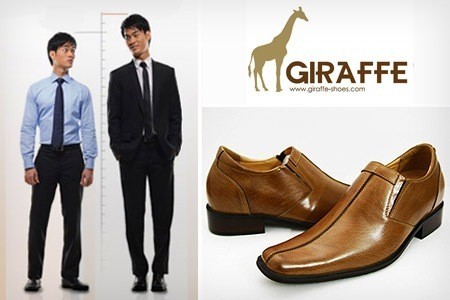That’s Why I Bought Elevator Shoes!
MaryKate Morse in her fascinating book Making Room For Leadership sates that Jesus was very ordinary from a physical and perceived stance and that he was a minimalist, but he changed the world. At least as ordinary, I’m in good company!
For six years I worked in Marketing and Sales for a company in Kansas. I oversaw the international division, therefore traveled often, primarily to the developing countries of Latin America. It was a time that I felt the power of influence. According to Morse, being male, middle-aged, married and educated should have been an adequate beginning to hold power within the group of leaders and managers I dealt with regularly. But in addition, since I was from North America, although not personally well to do financially, I was perceived as one of wealth and with my company behind me, I even held positional power.
I enjoyed that inflated sense of self until the company restructured and I was reassigned to become one of three national accounts managers – the other two being sons of the owner.
Suddenly my power of influence changed radically. My position was diminished as many wanted to work with the owner’s sons. Now I was a middle class worker, dealing many times with people richer, more powerful and more educated than myself – and taller! Being short hadn’t been an issue in Latin America where I seemed of average stature, but now I was not the one people admired as I walked into a room. So I bought elevator shoes! From research, I knew that America would never elect a president less than six feet tall and that over a lifetime, each inch of height, for a man, adds roughly $100,000. So, elevator shoes it was!

But Morse also speaks of leadership and power as constituted within groups and that body cues and instinctual decisions can play a part since authentic leadership is a group sport rather than an individual practice. As leaders, she points out that although temptations are great and abundant, we should still strive for power and capacity for influence to be a true servant leader. We too, are reminded that those with power can and need to speak for those without. So beside elevator shoes, how does one accomplish this?
Morse takes us through an explanation of different types of possible spaces and how to define our space in productive ways. There is tension with this attitude, as an outgrowth of Christianity is many times the opposite (unless you are one of the stars of the “Preachers of LA” – then you have to dominate spaces). A great example is the young Pakistani lady, Malala. By all accounts she shouldn’t dominate space or exercise power, but her presence is incredibly powerful and strong – it goes beyond conventional wisdom.
As I read this book I continually thought of body language and externals since I’m just a normal, ordinary type of fellow, imagining in my mind a picture of myself, taller, richer, better looking etc. However, she ends the book talking of inner preparedness. As I reflect on my influence or lack of it in meetings and with “big space” people, I saw my shortcoming and covenanted to renew times of open spaces for my personal inner preparedness before meetings and gatherings. I’ll ask the “whys” and focus attention on the viscerals that can be changed – leaving my elevator shoes at home in the closet, remembering that “power used poorly is sinful.” (p.33)
Leave a Reply
You must be logged in to post a comment.